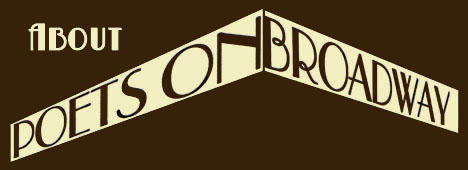
| Of the twelve items performed here, it was mere chance that resulted in no less than three pieces by Kurt Weill and Maxwell Anderson being included. With the emphasis squarely on the lyrics of these marvelous songs, Anderson was bound to be a 'natural' choice. He was already an established playwright/poet by the time he came around to collaborating with Weill. Weill's own indiosyncratic way with a melody, based on solid classical precepts, made their partnership, one likes to think, inevitable. All the selections here are typical of their work both apart and together, from the optimistic reminiscences of the older man looking back in "September Song," to the heartbreaking lament of "It never was You," and the strongly philosophical "Lost in the Stars." The pairing of Weill and Anderson led to a close personal friendship.
Kurt Weill also wrote with Ira Gershwin after George's untimely death in 1937. The show "Lady in the Dark" was the result, yielding, amongst other gems, the wistful "My Ship," which shows us an unusually poetic Ira. It is interesting to realize that whomever Weill collaborated with, Anderson, Ira Gershwin, Brecht, he still managed to maintian an intantly-recognizable style. George & Ira Girshwin, of course, need no introduction; their work will live on forever, oblivious to whatever musical fashion is current. In "By Strauss," we see a delightfully satirical approach to the Viennese waltz, with a typically lilting melody and slyly wicked words. Loren Hart is arguably the greatest of all lyricists, and his work with Richard Rodgers places him at the very pinnacle of the era. "Where or When" has a dreamy, somewhat mystical message, combining, as so often with Hart, conversational and thought-provoking language. "Make Someone Happy" was included because the team of Comden & Green had a wonderful technique of saying something simply and economically, and yet leaving us satisfied. The melody by Jule Styne is refreshingly unusual. Noel Coward was called The Master, and it is a title richly deserved. With limited musical training, he came up with hit after hit, the lyrics being his real forte...a kind of British Irving Berlin. "World Weary" is first-rate Coward - provocative, down-to-earth and witty. "Fun to be Fooled" is a simple tune by Harold Arlen, and again, what really makes the impact is the self-deprecation of Harburg and Gershwin's words. He/she knows full well that they are being taken for a ride, but, what the heck, let's enjoy it! An unusual mixture of cynicism and fun. The two songs by Burton Lane and E.Y. (Yip) Harburg from "Finian's Rainbow" are among the very best of Broadway, from the wistfully Gaelic "How are Things in Glocca Morra?" to the brilliant "When I'm not Near the Girl I Love," showing us Harburg at his playful and clever best. One of the most intriquing lyrics is by Howard Dietz to the music of Arthur Schwartz - "Dancing in the Dark." It has a double meaning, setting the literate idea of actually dancing in the dark against the more abstract concept of mere mortals stumbling around as they go through Life. Dietz was a man of many parts, at one time a high-ranking executing with MGM. He wrote mostly with Schwartz. Notes by Tony Jay, copyright Cornucopia Productions 1996. Tony Jay uses Yamaha products. Engineering by Doug Green at Commercial Soundworks, Hollywood. Special thanks to Paul Korda. About Tony Jay... Tony Jay's "Poets on Broadway" |
All content created by Sai Kennedy on wingedsonar.com is © 2000-2009 to Sai Kennedy "Poets on Broadway" is Copyright 1996 Cornucopia Productions Inc. |